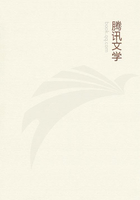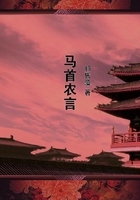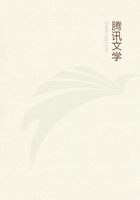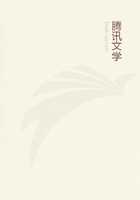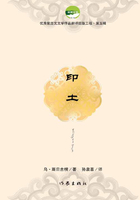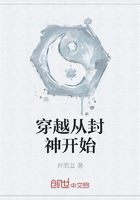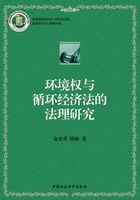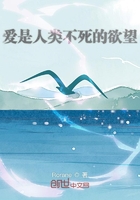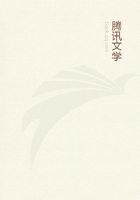Lord Palmerston's laugh--a queer metallic "Ha! ha! ha!" with reverberations in it from the days of Pitt and the Congress of Vienna--was heard no more in Piccadilly; Lord John Russell dwindled into senility; Lord Derby tottered from the stage. A new scene opened; and new protagonists--Mr. Gladstone and Mr. Disraeli--struggled together in the limelight. Victoria, from her post of vantage, watched these developments with that passionate and personal interest which she invariably imported into politics. Her prepossessions were of an unexpected kind. Mr. Gladstone had been the disciple of her revered Peel, and had won the approval of Albert; Mr. Disraeli had hounded Sir Robert to his fall with hideous virulence, and the Prince had pronounced that he "had not one single element of a gentleman in his composition." Yet she regarded Mr. Gladstone with a distrust and dislike which steadily deepened, while upon his rival she lavished an abundance of confidence, esteem, and affection such as Lord Melbourne himself had hardly known.
Her attitude towards the Tory Minister had suddenly changed when she found that he alone among public men had divined her feelings at Albert's death. Of the others she might have said "they pity me and not my grief;" but Mr. Disraeli had understood; and all his condolences had taken the form of reverential eulogies of the departed. The Queen declared that he was "the only person who appreciated the Prince." She began to show him special favour; gave him and his wife two of the coveted seats in St. George's Chapel at the Prince of Wales's wedding, and invited him to stay a night at Windsor. When the grant for the Albert Memorial came before the House of Commons, Disraeli, as leader of the Opposition, eloquently supported the project. He was rewarded by a copy of the Prince's speeches, bound in white morocco, with an inscription in the royal hand. In his letter of thanks he "ventured to touch upon a sacred theme," and, in a strain which re-echoed with masterly fidelity the sentiments of his correspondent, dwelt at length upon the absolute perfection of Albert.
"The Prince," he said, "is the only person whom Mr. Disraeli has ever known who realised the Ideal. None with whom he is acquainted have ever approached it. There was in him a union of the manly grace and sublime simplicity, of chivalry with the intellectual splendour of the Attic Academe. The only character in English history that would, in some respects, draw near to him is Sir Philip Sidney: the same high tone, the same universal accomplishments, the same blended tenderness and vigour, the same rare combination of romantic energy and classic repose." As for his own acquaintance with the Prince, it had been, he said, "one of the most satisfactory incidents of his life: full of refined and beautiful memories, and exercising, as he hopes, over his remaining existence, a soothing and exalting influence." Victoria was much affected by "the depth and delicacy of these touches," and henceforward Disraeli's place in her affections was assured. When, in 1866, the Conservatives came into office, Disraeli's position as Chancellor of the Exchequer and leader of the House necessarily brought him into a closer relation with the Sovereign. Two years later Lord Derby resigned, and Victoria, with intense delight and peculiar graciousness, welcomed Disraeli as her First Minister.
But only for nine agitated months did he remain in power. The Ministry, in a minority in the Commons, was swept out of existence by a general election. Yet by the end of that short period the ties which bound together the Queen and her Premier had grown far stronger than ever before; the relationship between them was now no longer merely that between a grateful mistress and a devoted servant: they were friends. His official letters, in which the personal element had always been perceptible, developed into racy records of political news and social gossip, written, as Lord Clarendon said, "in his best novel style." Victoria was delighted; she had never, she declared, had such letters in her life, and had never before known EVERYTHING. In return, she sent him, when the spring came, several bunches of flowers, picked by her own hands. He despatched to her a set of his novels, for which, she said, she was "most grateful, and which she values much." She herself had lately published her "Leaves from the Journal of our Life in the Highlands," and it was observed that the Prime Minister, in conversing with Her Majesty at this period, constantly used the words "we authors, ma'am." Upon political questions, she was his staunch supporter. "Really there never was such conduct as that of the Opposition," she wrote. And when the Government was defeated in the House she was "really shocked at the way in which the House of Commons go on; they really bring discredit on Constitutional Government." She dreaded the prospect of a change; she feared that if the Liberals insisted upon disestablishing the Irish Church, her Coronation Oath might stand in the way. But a change there had to be, and Victoria vainly tried to console herself for the loss of her favourite Minister by bestowing a peerage upon Mrs. Disraeli.
Mr. Gladstone was in his shirt-sleeves at Hawarden, cutting down a tree, when the royal message was brought to him. "Very significant," he remarked, when he had read the letter, and went on cutting down his tree. His secret thoughts on the occasion were more explicit, and were committed to his diary. "The Almighty," he wrote, "seems to sustain and spare me for some purpose of His own, deeply unworthy as I know myself to be. Glory be to His name."

